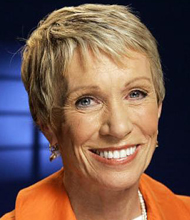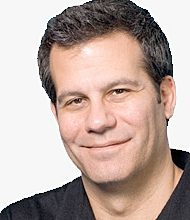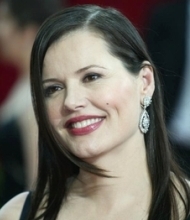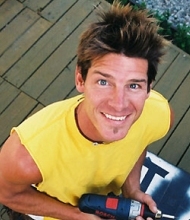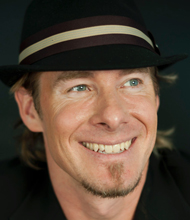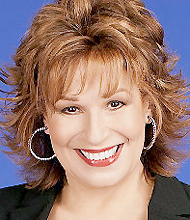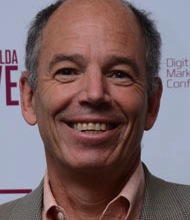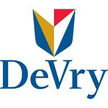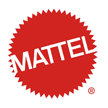| TRAVELS FROM |
|
SPEAKING FEE RANGE ** Please note that while this speaker’s specific speaking fee falls within the range posted above (for Continental U.S. based events), fees are subject to change. For current fee information or international event fees (which are generally 50-75% more than U.S based event fees), please contact us. $30,000 to $50,000 |
|
BOOK BARBARA CORCORAN speakers@coreagency.com |
| TRAVELS FROM |
|
SPEAKING FEE RANGE* $30,000 to $50,000 |
|
Book Barbara Corcoran speakers@coreagency.com |
- As founder of a multi-billion dollar New York real estate business, Corcoran has turned her story of failure and hard knocks into an inspirational example of what someone can do with focus and hard work.
- Corcoran, one of the “sharks” on ABC’s “Shark Tank” and an investor in 22 start-ups from the show, is gifted at identifying entrepreneurial talent and opportunity where few others see it.
- She knows what it takes to create and build a business and attract great talent. She started with a $1,000 loan and 28 years later, sold her business for $66 million.
- Corcoran is the author of Shark Tales; How I Turned $1,000 into a Billion Dollar Business and two other books about business growth an innovation.
Barbara Corcoran’s early career is probably best described by the old proverb: “If at first you don’t succeed, try, try again. “ A low-performing high school and college student, Corcoran had held 20 jobs by the time she was in her mid-20s. But when she quit her waitress job and borrowed $1,000 to start The Corcoran Group, her luck changed dramatically, and she became one of the most successful entrepreneurs in the country. Corcoran is best known nationally as a “shark” on ABC’s “Shark Tank.” Through the show, she has personally invested in and shepherded 22 businesses.
As one of 10 children growing up in a blue-collar family in New Jersey, Corcoran shared her bedroom with five sisters. After graduating from St. Thomas Aquinas College with a degree in education, Corcoran taught school for a year, but quickly tired of that and moved on to other jobs. While renting out New York City apartments, she decided she wanted to be her own boss, so in 1973 she co-founded with her boyfriend a real estate business called The Corcoran Group. She also began publishing The Corcoran Report, which highlighted NYC real estate trends. In 2001, she sold her business to NRT Inc. for $66 million and began consulting with businesses and producing television programming through Barbara Corcoran, Inc.
Corcoran is a columnist for New York Daily News, More Magazine, The Daily Review, and Redbook, is featured regularly on NBC's Today, and hosts The Millionaire Broker with Barbara Corcoran on CNBC. She is known for her brash assessments and blunt feedback, and is considered a brilliant identifier of opportunity and talent that’s often invisible to others.
Her newest book, Shark Tales; How I Turned $1,000 into a Billion Dollar Business, takes readers behind the scenes of Corcoran’s life and business. Her other books include If You Don't Have Big Breasts, Put Ribbons on Your Pigtails and Other Lessons I Learned from My Mom and Nextville: Amazing Places to Live Your Life.
Despite her humble upbringing, Corcoran credits her mom for her self-confidence. Even with 10 children, her mother nurtured the unique talents of each of her children. Corcoran lives in Manhattan with her husband and two children.
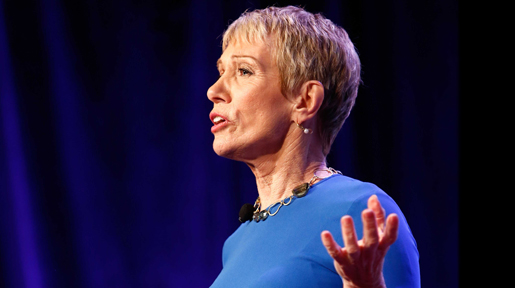 Nobody is ever totally happy with what's going on in their life. I'm really just out to move people forward. I want to get them juiced-up so they feel like they can reach into themselves and get the power to move themselves ahead. Nobody is ever totally happy with what's going on in their life. I'm really just out to move people forward. I want to get them juiced-up so they feel like they can reach into themselves and get the power to move themselves ahead. | |
| |
 | What do you want people to learn and take away from your presentations? |
 | One thing: I want them to feel motivated and empowered because I think everybody deserves it and because I generally believe that just about everybody in that audience is in a rut. Maybe it's not the right way to look at the audience, but even the people who do an exceptional job can get very comfortable doing an exceptional job. Nobody is ever totally happy with what's going on in their life. I'm really just out to move people forward. I want to get them juiced-up so they feel like they can reach into themselves and get the power to move themselves ahead.
Then I hope it sticks with them because it's kind of nice to be in the entertainment business and get people juiced-up for an hour or two, but it's really useless and almost disappointing if they go home and do nothing. I like to think people really go home and act on it. I do believe I touch a lot of people. I don't know what percentage, but I get so much feedback about how I’ve made a direct change in people’s lives, and they're very specific in their compliments. I definitely never leave an event thinking I haven't changed people for the better. Public speaking wouldn’t be worth the effort if I felt like I weren't able to do that. It takes too much out of you and I don't need the money, but I really need to feel like I'm effective in making change. |
| I talk about welcoming change and seeing change as the opportunity that it clearly is - and it always is, if you look on the bright side of it and dig for the gold. | |
| |
 | What are some of the topics and themes you address in your speeches? What do you want to convey to your audiences? |
 | As of now, I probably have between 40 and 45 main points. When I do the pre-conference call with the client and the speaking bureau, I try to figure out which are the best ones that fit their audience. I like doing pre-conference calls, because I feel like I really understand who's in the audience not just by way of age, gender, income level, or what they do for a living, but what's the problem in the industry.
I would say with 85% of all these industry speeches, the problem is dealing with change because technology has rewritten all of these businesses and a lot of people are having a hard time getting their old dogs to do a new trick. So often I talk about welcoming change and seeing change as the opportunity that it clearly is - and it always is, if you look on the bright side of it and dig for the gold. I like to tell stories on my best successes. I don’t lecture – I don’t say "You should do this or this”, because I hate it when somebody tells me this. I tune them out, with this attitude of "Don't tell me what to do." There's great power in a story because it doesn’t directly come out and state the moral. People get to conclude it on their own without you shoving it down their throat. Another reason I like to tell stories is I find that after many, many years, I will run into people who say, "I remember you told me the story about the such and such” and they’ll tell me about an action they took because of the story. So I think people remember stories, but they don't remember lectures. Overall that's my methodology: I just pick out what stories I want to tell to prove the point that I think will be helpful to the audience in their particular business at that particular time. |
| I had all the struggles they had coming up the pike. I'm a walking, talking example of who they could be, and so I'm best able to give them hope. | |
| |
 | Are there particular audiences you think resonate more with your message than others, or do you think that you kind of have the universal message that applies to everybody? |
 | The poorer the crowd and the less hopeful the crowd, the more impact I feel I have. If I'm speaking to a room of underprivileged women who are all starting their own businesses or trying to, or trying to at least dream about it or women who can't financially afford to change their life because they have two kids, they're a single mom - the more duress that someone in my audience has, the more they need hope. They're most in need of thinking they can take circumstances into their hands, grab the power, and change their life.
With that audience, I try especially hard. I resonate well with those ladies and men, because I am them - I was a rags to riches story. I had more advantages than a lot of the people in the audience often have in that I had parents that loved me, which I have learned in life isn't always the case. That is such a major card, but otherwise I had all the struggles they had coming up the pike. I'm a walking, talking example of who they could be, and so I'm best able to give them hope. That being said, the reason I feel like I resonate best with that audience more than everyone else, is because when I come off the stage, rather than asking for selfies, which is the norm today with everybody no matter how sophisticated they are, this particular group of men and women - who haven't had the breaks in life, really want them, think they can do it and are trying - they're hugging and kissing me. They're squeezing me to death so much that sometimes I feel like I'm going to suffocate and maybe die, but what a happy way to go! |
"...Barbara really connected with the audience and was well received. She has a very down to earth style that was appreciated by the sales team. It was a memorable talk."
John Garrigan- SkinCeuticals
(Event booked by Speakers Platform)
"Barbara electrified the audience because they knew she had traveled a path in life that had similarities to their own. While others talk about thinking outside the box, Barbara has seldom stepped inside that box. Her words were nothing less than priceless and there is no doubt that the impression she made will be a gift carried by all for the rest of their lives. Everyone fell in love with her!"
-- Rick Schwartz,
President & CEO,
World Association of Domain Name Developers Inc.
"By dedicating the time and attention to understanding both our models and the challenges that face our franchisees, your keynote carried the weight of someone who is as invested and committed as they are, it was powerful, on track, needed, required, and well worth it."
-- Tracy Christman,
Budget Blinds, Inc.
"Thank you so much for agreeing to be our keynote speaker at the 27th Annual Women In Leadership Awards luncheon. The membership of Executive Women of the Palm Beaches and our guests were so impressed by your candor and authenticity as you delivered your message. While the lessons you shared with us were meaningful and very practical, what made it such a memorable experience was to see how someone as successful as you can still be so approachable. The most frequent comment received from your audience was that everyone felt as if they had known you for years, you were one of us. Getting to know you as you interacted with your ′fans′ made me understand that your success was not just due to your knowledge and experience, but also to your charming personality."
-- Regina Bedoya,
Executive Women of the Palm Beaches
"Barbara spoke at our officers′ conference with people from 16 countries in attendance. She was utterly charming-sensible, accessible and funny. Her insights about the real estate market spill over into personal career development and everyday economics. She′s the one people remember."
-- George Lancaster,
Senior Vice President,
Hines Development
Barbara Corcoran inspires even the biggest cynics in an audience. Her rags-to-riches story and ability to focus on what she wanted to accomplish, then turn it into a multi-billion dollar business, is what the American dream is made of. Corcoran’s straightforward style and tell-it-like-it-is delivery doesn’t mess around with information attendees don’t need. Her presentation is just the thing many entrepreneurs need to hear in order to take that next step and change their life.
Barbara’s Rags-to-riches Story
After failing at 22 jobs, Corcoran borrowed $1,000 from a boyfriend, quit her job as a diner waitress, and started a tiny real estate office in New York City. Using the unconventional lessons she learned from her homemaker mom, she gradually built a $6 billion dollar business, The Corcoran Group. Highly motivational and sensationally entertaining, Barbara Corcoran’s recipes for success are chock-full of real-life lessons.
Leading Your Team to Greatness
Corcoran built the largest residential company in New York City, The Corcoran Group, by choosing the right people. In this presentation, she shares her best strategies for getting teams motivated and moving forward, for hiring the right people and firing the wrong ones, for creating an atmosphere of fun, and for forging ahead when the chips are down. Her unique and practical lessons help salespeople, managers, and business owners take their businesses to the next level.
What Are the Sharks Really Like?
Take a ride behind the scenes of the ABC hit reality show “Shark Tank.” Do all the sharks get along? What happens when the cameras are off? And what is Kevin really like? Are the sharks really investing their own money and getting information on the businesses before they meet the entrepreneurs on set? Corcoran takes you behind the scenes for all the shenanigans, bloopers, and private information the other sharks don’t want you to know.
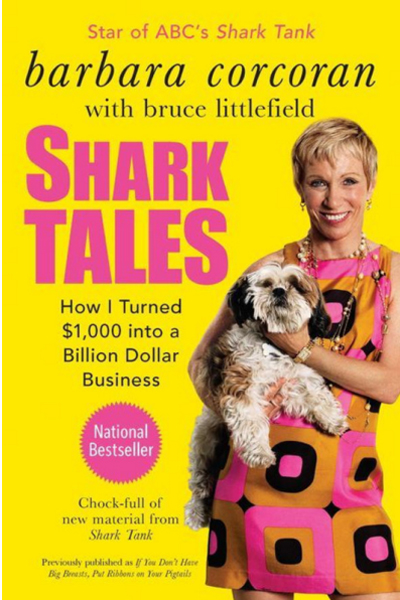
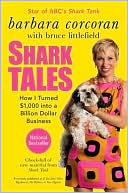 Shark Tales: How I Turned $1,000 into a Billion Dollar Business
Shark Tales: How I Turned $1,000 into a Billion Dollar Business
The inspiring true story of Shark Tank star Barbara Corcoran—and her best advice for anyone starting a business. After failing at twenty-two jobs, Barbara Corcoran borrowed $1,000 from a boyfriend, quit her job as a diner waitress, and started a tiny real estate office in New York City. Using the unconventional lessons she learned from her homemaker mom, she gradually built it into a $6 billion dollar business. Now Barbara′s even more famous for the no-nonsense wisdom she offers to entrepreneurs on Shark Tank, ABC′s hit reality TV show.
Shark Tales is down-to-earth, frank, and as heartwarming as it is smart. After reading it don′t be surprised if you find yourself thinking, "If she can do it, so can I." Nothing would make Barbara happier.
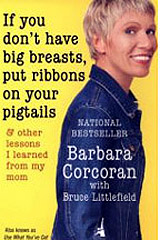
If You Don′t Have Big Breasts, Put Ribbons On Your Pigtails
Growing up, Barbara Corcoran shared one floor in a three-family house in New Jersey with her parents and nine brothers and sisters. She had few luxuries, but she was blessed with a mother who taught her to have self-confidence. Barbara’s mom didn’t know much about business, but she understood how the world works, and how to make the most of what you’ve got.
After failing at twenty-two other jobs, Barbara borrowed $1,000 from a boyfriend, quit her job as a diner waitress, and started a tiny real estate office in New York City. Today, with just over $4 billion in revenues, The Corcoran Group is New York’s premier real estate company, and Barbara is richer than her wildest childhood dreams.
What can you learn?
In Put Ribbons on Your Pigtails, Barbara shares her hilarious stories about growing up, getting into trouble, failing miserably, and then starting over again. In each chapter, she comes back to one of her mom’s twenty-four unconventional lessons, and how it applies in the real world of business.
For instance:
If you don’t have big breasts, put ribbons on your pigtails.
When the clubhouse is quiet, they’re probably not making spaghetti.
If you want to be a cheerleader, you better know the cheers.
When there are ten buyers and three puppies, every dog is the pick of the litter.
Jumping out the window will make you either an ass or a hero. You’ve got to bully a bully.
This stuff really works!
Whatever your calling, the homespun lessons that work for Barbara will help you use what you’ve got to create success in your life. Whether you’re just starting out, fighting your way up the career ladder, or reentering the workforce, Put Ribbons on Your Pigtails is an owner’s manual to your most valuable asset.

In this interview, Barbara Corcoran discusses:

 VIDEO
VIDEO TESTIMONIALS
TESTIMONIALS PROGRAMS
PROGRAMS SPEAKING
SPEAKING BOOKS
BOOKS INTERVIEW
INTERVIEW